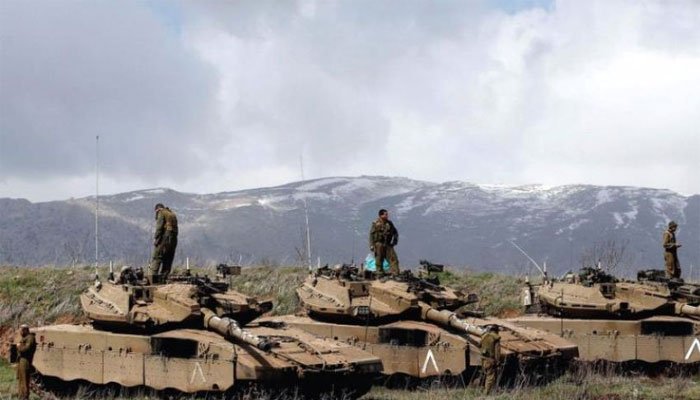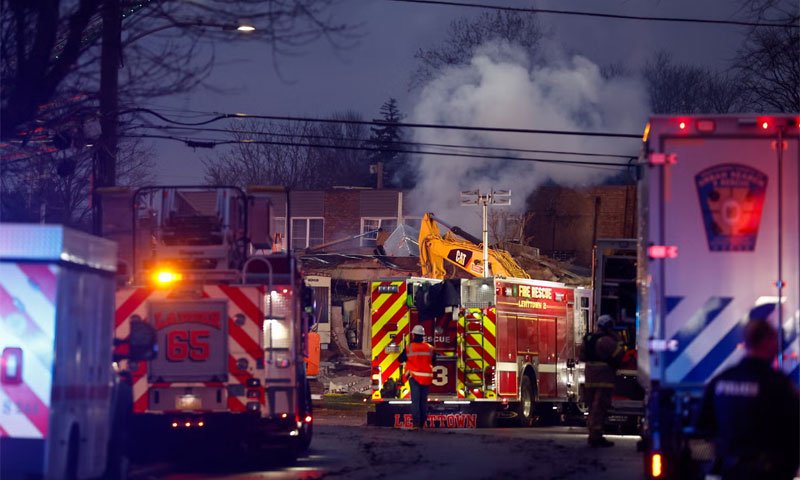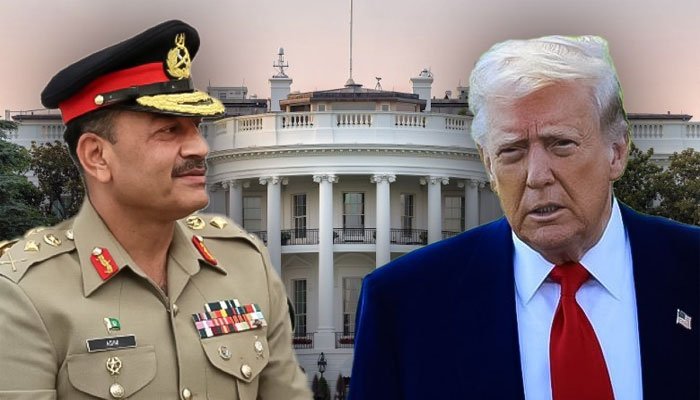The developments mark a significant escalation in the ongoing tensions between Israel and Syria.
Israeli Tanks advance near Damascus as IDF strikes over 300 sites in Syria. Tensions escalated in Syria as Israeli Defense Forces (IDF) reportedly advanced 25 kilometers southwest of Damascus, with tanks sighted about 20 kilometers from the Syrian capital. Sources indicated an incursion near Qatana, although the Israeli Army denied penetrating beyond the demilitarized buffer zone, stating that operations were conducted within the area.
In a significant military operation, the Israeli Air Force (IAF) targeted Syrian naval assets, with Israeli missile ships destroying several Syrian vessels, including those carrying sea-to-sea missiles, in the Mina al-Bayda region and the port of Latakia. The IDF confirmed that the operation aimed to prevent Syria’s naval assets from falling into the hands of hostile groups, which could pose a direct threat to Israeli security.
Israeli Ambassador Danny Danon assured the United Nations Security Council that the military actions were limited, temporary, and focused on neutralizing immediate security threats, particularly in the Golan Heights, where Israeli citizens live under constant threat from neighboring Syria.
Additionally, Israeli Defense Minister Israel Katz has ordered the IDF to intensify operations along the Syrian border, emphasizing the need to secure the region and strengthen ties with local populations. The developments mark a significant escalation in the ongoing tensions between Israel and Syria.
With Assad ousted, new era starts in Syria as world watches
Syrians awakened on Monday to a hopeful if uncertain future, after rebels seized the capital Damascus and President Bashar al-Assad fled to Russia, ending a 13-year civil war and more than 50 years of his family’s brutal rule.
The lightning advance of a militia alliance spearheaded by Hayat al-Tahrir al-Sham (HTS), a former al-Qaeda affiliate, marked one of the biggest turning points for the Middle East in generations. Assad’s fall wiped out a bastion from which Iran and Russia exercised influence across the Arab world.
Moscow gave asylum to Assad and his family, Russian media reported and Mikhail Ulyanov, Russia’s ambassador to international organisations in Vienna, said on his Telegram channel on Sunday.
International governments welcomed the end of the Assads’ autocratic government, as they sought to take stock of a new-look Middle East.
United States President Joe Biden said Syria is in a period of risk and uncertainty, and it is the first time in years that neither Russia, Iran, nor the Hezbollah organisation held an influential role there.
HTS is still designated as a terrorist group by the US, Turkey, and the United Nations, although it has spent years trying to soften its image to reassure international governments and minority groups within Syria.
Japan’s chief cabinet secretary, Yoshimasa Hayashi, said on Monday Tokyo was paying close attention to developments in Syria.
Assad’s overthrow limits Iran’s ability to spread weapons to its allies and could cost Russia its Mediterranean naval base. It could also allow millions of refugees scattered for more than a decade in camps across Turkey, Lebanon, and Jordan to finally return home.





